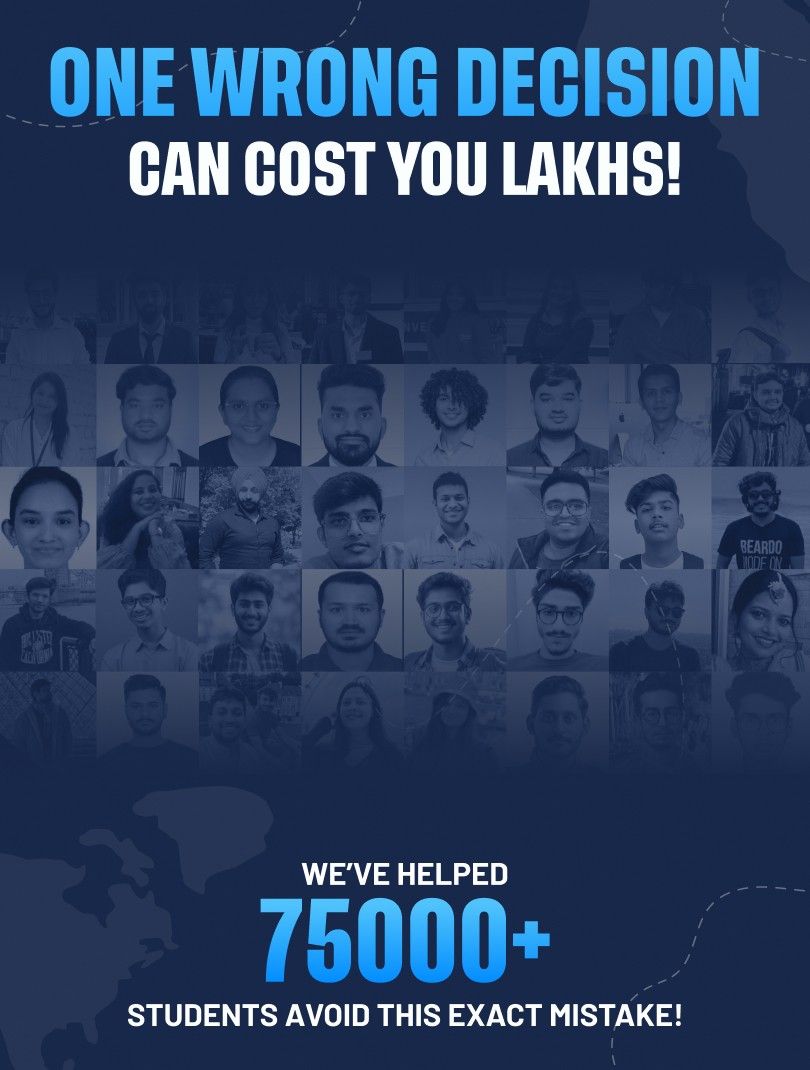
How to Study in Germany After 12th: A Step-by-Step Guide for Indian Students?
How to Study in Germany After 12th: A Step-by-Step Guide for Indian Students?

For many Indian students, studying abroad is about building a better future, gaining global exposure, and accessing world-class education. Among the top destinations for higher education, Germany has emerged as a favorite, especially for those who wish to pursue bachelor’s studies after completing 12th grade in India.
If you're asking, “How do I study in Germany after 12th?”you’re not alone. Thousands of students from across India are now choosing Germany because of its zero tuition fees at public universities, excellent academic standards, globally recognized degrees, and vibrant student life.
What makes it even more attractive is the country’s strong focus on engineering, computer science, management, and healthcare programs, fields that are in high demand across the world. However, the admission process can be a bit different for Indian students, especially right after 12th standard, and it requires careful planning, timely applications, and correct documentation.
This step-by-step guide is designed to help Indian students navigate the process of studying in Germany after 12th, right from choosing the right course to getting your student visa. We’ll also explain how working with trusted Study in Germany Consultants and Germany Student Visa Consultants in India can simplify your journey and improve your chances of success.
Whether you’re from Delhi, Bangalore, Mumbai, Ahmedabad, or any other city in India, this blog will provide you with everything you need to confidently plan your education in Germany.
Let’s dive into your roadmap to Study in Germany from India after 12th!
Step 1: Choose the Right Program and University
Germany offers an impressive variety of undergraduate programs, many of which are now taught in English, making them ideal for international students. Fields like Engineering, Computer Science, Business & Management, Social Sciences, and Design are particularly popular among Indian students.
There are two types of higher education institutions in Germany:
- Universities (Universität): More academic and research-oriented
- Universities of Applied Sciences (Fachhochschule): Focused on practical, industry-ready education
Tip: Use the DAAD portal (German Academic Exchange Service) to search for accredited programs tailored to your interests and eligibility. You can filter programs taught in English and check specific requirements.
If you’re unsure which university best suits your profile, a Study in Germany consultant can guide you through program selection based on your academic background and career goals.
Step 2: Check Eligibility Criteria
A common question is: Can I study in Germany directly after 12th from India?
The answer depends on the board and curriculum you followed. Due to differences between the Indian and German education systems, most Indian students are not eligible for direct entry into Bachelor's programs after 12th (unless they’ve studied A Levels or International Baccalaureate).
If you studied under CBSE, ICSE, or State Boards, you’ll likely need to complete:
- Studienkolleg: A one-year foundation course in Germany, ending with a qualifying exam called Feststellungsprüfung.
- Alternative pathways: Some students choose to do a diploma year or a preparatory year in India or other EU countries before applying.
Make sure to check the Anabin database to verify if your qualification is recognized for direct entry.
Step 3: Learn German (If Required)
While many Bachelor's programs in Germany are now offered in English, especially at private or specialized universities, most Studienkolleg courses are conducted in German.
Therefore, if you plan to take the Studienkolleg route, German proficiency is mandatory.
Recommended German Language Level:
- B1 to B2 (Intermediate level) for Studienkolleg admission
- C1 for full German-taught Bachelor's programs
Even if your course is in English, learning basic German will help you adapt to local life, internships, and part-time jobs. You can prepare by enrolling in a certified Goethe-Institut or Max Mueller Bhavan center in India.
Step 4: Apply for Studienkolleg or Direct Bachelor’s
If you're eligible for direct admission (IB, A-level students), you can apply directly for Bachelor's programs.
For most Indian students, the Studienkolleg route is more common. There are various subject tracks in Studienkolleg (like T-course for Engineering, W-course for Economics, etc.), so choose based on your target degree.
Application Methods:
- Uni-Assist: A centralized application platform used by over 180 German universities
- Direct University Portals: Some universities allow direct online applications
Ensure you meet deadlines, most intakes happen in March/April (Summer semester) and September/October (Winter semester)
Step 5: Prepare Your Application Documents
German universities are very particular about documentation. Any missing or incorrect file can delay or reject your application.
Essential Documents Include:
-
- 10th & 12th standard mark sheets (translated if required)
- Valid passport
- Statement of Purpose (SOP)
- Letters of Recommendation (LORs)
- Proof of language proficiency (IELTS/TOEFL/German)
- Passport-size photos (as per visa norms)
Pro Tip: Work with an experienced Study in Germany consultant in India to ensure proper SOP drafting, notarizations, and translations. They can also evaluate your profile and strengthen your application.
Step 6: Apply for a Germany Student Visa
Once you receive your admission letter (from a university or Studienkolleg), it’s time to apply for a Germany Student Visa (Visum zu Studienzwecken).
Documents Required for Student Visa:
- University or Studienkolleg admission letter
- Passport (valid for at least 12 months)
- Proof of funds in a Blocked Account (€11,208 for one year)
- Travel and Health insurance
- Visa application form + biometric photos
- Academic transcripts and SOP
The visa process is handled by the German Embassy or VFS Global centers in India. Appointments and processing can take time, so apply well in advance (2–3 months before semester start).
Consulting certified Germany Student Visa Consultants will help avoid rejections and delays due to minor documentation errors or unclear financial proof.
Step 7: Fly to Germany and Begin Your Journey!
Once your visa is approved, it's time to prepare for departure! But your checklist doesn't end there. Upon arrival in Germany, you must complete several formalities:
Post-Arrival Steps in Germany:
- Register your address (Anmeldung) at the local registration office within 2 weeks
- Open a local bank account
- Apply for your Residence Permit (needed for stays beyond 90 days)
- Enroll at your university and get your student ID
You’ll also want to explore options for student accommodation, part-time jobs, and getting a SIM card, travel card, etc.
Starting your study abroad life can be overwhelming, which is why top study in Germany consultants often offer pre-departure briefings and airport pickup support.
How Edugo Abroad Can Help You Study in Germany?
At Edugo Abroad, our expert team of Germany education consultants have helped thousands of Indian students achieve their study abroad dreams. As trusted study in Germany student visa consultants, we:
-
- Assist with university shortlisting
- Guide you through the Studienkolleg process
- Handle all your documentation and SOP
- Provide visa, accommodation, and departure support
Book a Free Counseling Session with our Study in Germany consultants now and take the first step toward your global career.
FAQS
Get A Free Consulting Today
Get your answers related to abroad study.



